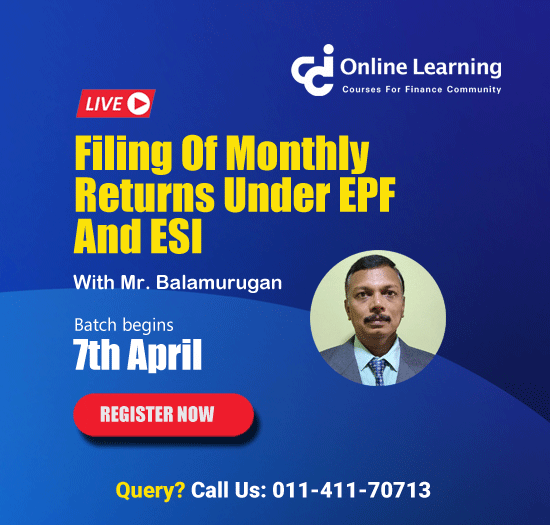As I write this missive the Union budget 2023 was delivered by the Honourable Finance Minister on February 1,2023. This was first Amrit Kaal Budget for the nation. Through this write up changes in domestic taxation will be articulated keeping in mind the Supreme Court judgment's impact in the Income –Tax Act(''ACT") and Income tax Rules(''Rules"). Domestic taxation is a vast subject which consist of two areas namely direct taxation & international taxation. The scope of international taxation is expanding its horizons with globalization, digitalization being vital pillars of economy.
The changes in domestic taxation at basic level need to be understood in seven parts namely
- Slab Rates
- Business Income & Capital Gain
- International Taxation
- Assessment procedures
- Set off carry forward Chapter VIA
- TDS (Tax deducted at source), TCS (Tax collected at source)
- Others

A Basic caveat while reading this article is that the changes being articulated through Supreme Court Judgments are to be read at the stage when finance bill was passed. There is a possibility that certain tweaks can take place when Finance Bill becomes Finance Act. Hence care need to be taken while reading this article.
Apart from the other above 7 changes a Supreme Court judgment can impact the Income tax Act vide changes made in Budget.
In India Supreme Court judgment takes its own time (minimum of 15 years) from the context of Income tax which is a civil law in nature whether appeal is filed from assessee or department or both. As a Chartered Accountant specialising in transaction advisory services it is important to keep abreast of flow of Supreme Court judgment process starting from Assessing officer to Commissioner of Income tax to Income tax Appellate Tribunal to High Court to Supreme Court. There will be leaps and bounds for the entire transaction be it in terms of appeal by the party or department, scenario where a notification comes from CBDT, scenario where writ petition is preferred by assessee or department, scenario where one Supreme court judgment overrules the other lower level Judgment or even a scenario where by Supreme court judgment flow from Authority for Advance ruling (Now Board for advance rulings)
A Supreme court judgment in ordinary case may take 5 years for disposal but if a special leave petition is filed will be disposed off faster subject to the grievance filed. A Supreme Court judgment can be scenario where by case will be given to lower authorities or even to Assessing officer level to reconsider the issue and take the case afresh.
If Supreme court Judgement is given favourable to assessee it can be scenario where by retrospective amendments can be made in the Act (Vodafone case). If given against the assessee considering the scenario it can be modified partially or no change being done in the Act. A Supreme Court judgment can also be where by assessee is aggrieved assessee can file review again but subject to time bound process.
Some Supreme Court judgment remain neutral and can act as benefit to assessee and minimise litigation (ITC VS CIT) where by tips paid to employees the collection received from the customer does not amount to salary and no obligation arise to deduct tax. Especially when a hotel like ITC receives tips from customers and distributes to its employees particulary hotel chef here there constitutes no employer employee relationship. This remunerated on account of hospitality yeoman services rendered and no way employer employee relationship whether legal or contractual get established.
There is possibility where by a Supreme Court judgment becomes overridden by another court or lower authority judgment or even amendment made in Act.
Impact of Supreme Court ruling in Finance Bill 2023
Let me analyze three mind blowing scenarios
Scenario 1
Section 28 of the Act has now been amended that where benefit or perquisite is cash or kind in part then also will be taxed as Business Income. Due to this amendment a major Supreme court ruling has become redundant (Mahindra and Mahindra LTD vs CIT). This case in 2018 Supreme Court had upheld Bombay high court and held that cessation of loan is neither taxable under 41(1) nor 28(iv) and judgment was clear that perquisite in cash will be taxed. But now a major Supreme Court judgment gets redundant. This show that litigation can be minimised not erased.
Scenario 2
Recently the Supreme Court in case of Assistant Commissioner of Income-tax (Exemptions) vs Ahmedabad Urban development Society had held the word commercial has the same meaning as trade commerce business. It was held that in a open ended manner that where by services are rendered are done with cost plus nominal mark up will fall within the preview of commercial activity. This judgment impacts regulatory bodies like ICAI at large as how to define nominal mark up can never be understood mathematically. Supreme Court judgment are dramatic and even leads to further unsettled issues. Due to this Section 10(46) has now been modified by excluding Company.
Scenario 3
Section 170 A of the Act has now being modified that where by business reorganisation take place the successor shall now file modified returns within six months from the end of month in which reorganisation take place. Consequently Rule 12 AD has been notified the form and furnishing return by successor entities. The term Business reorganisation means demerger, insolvency, amalgamation, reconstruction. This provision arouse on account of multiple judgments and writ petition filed under Companies Act and taxation laws and in a case of Maruti Suzuki it was held that on a non existent entity notice cannot be issued as amalgamating entity legally ceases to exist. However in another case like PCIT vs Mahagun Realtors it was held by Supreme court based on appeal filed from the revenue that notice issued to a non existent entity is valid considering that amalgamating entity did not inform the income tax authorities about scheme of amalgamation as well was subject to search. Therefore facts and circumstances matters a lot.
Disclaimer: Case Laws are not in standard Format hence forth due care has to be taken in understanding.





 CAclubindia
CAclubindia

